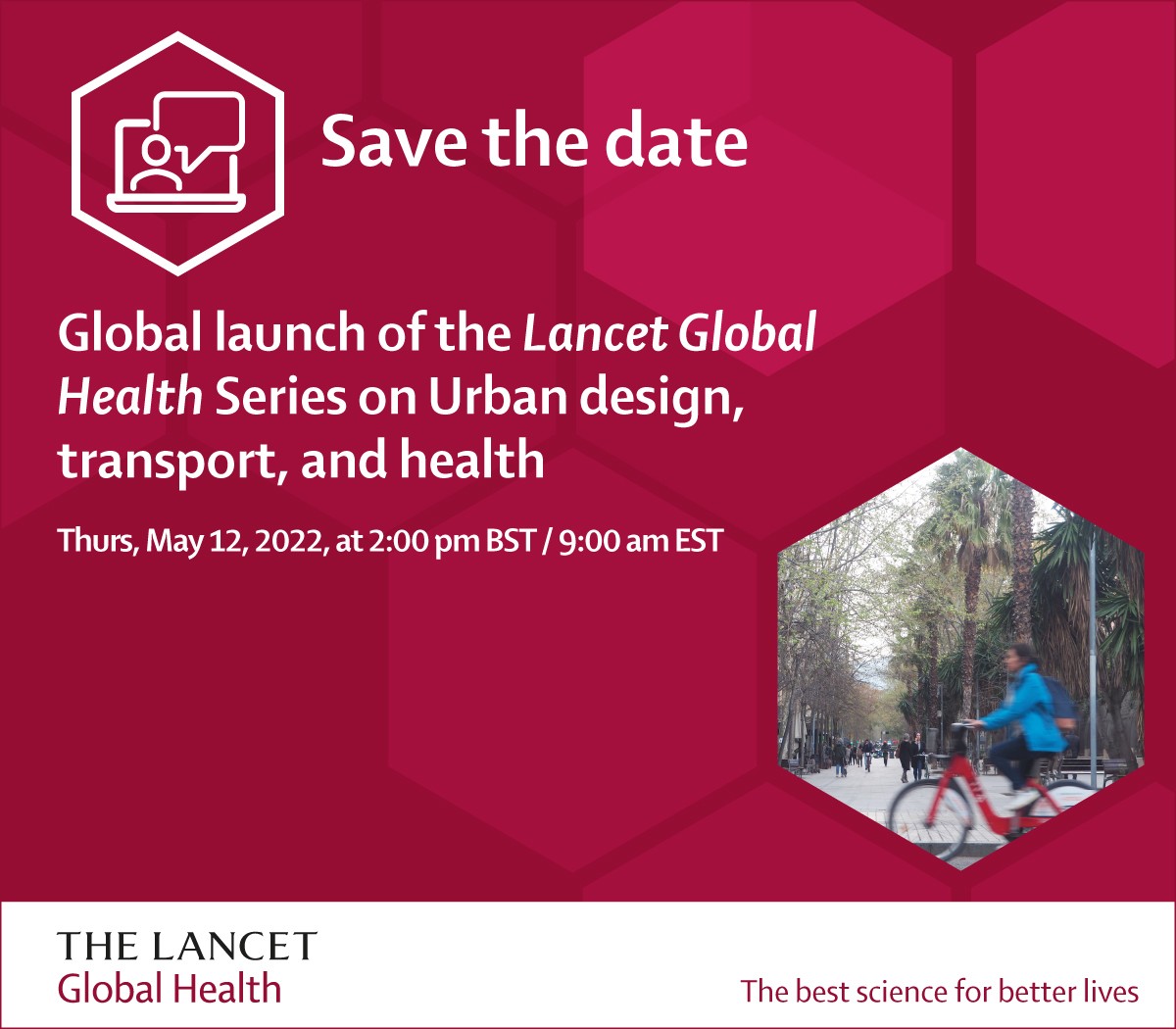Deepti Adlakha Research Published in Lancet Global Health Series
The team of more than 80 researchers in 25 cities across 19 countries used standardized methods to assess the policy settings and lived experiences of city-dwellers. They identified thresholds for urban design and transport features that would increase active transport and promote health and used spatial indicators to assess the health-supporting nature and sustainability of each city and identify inequities in access.
The new research used indicators such as proximity to public transport and food, walkability, city density, and policy settings to determine how healthy and sustainable are the cities of Maiduguri, Mexico City, Sao Paulo, Baltimore, Phoenix, Seattle, Hong Kong, Chennai, Bangkok, Hanoi, Graz, Ghent, Bern, Olomouc, Cologne, Odense, Barcelona, Valencia, Vic, Belfast, Lisbon, Adelaide, Melbourne, Sydney, and Auckland. The research published in TLGH is supported by reports and scorecards that present assessments for each city, available at www.healthysustainablecities.org. This series presents a first step toward the development of a global system of policy and spatial indicators for healthy and sustainable cities using tools the group has created.
A public launch webinar will be hosted on May 12th (register at the link below). In this Webinar, the Series authors, led by Prof. Billie Giles-Corti, will present their work which follows on from the 2016 Lancet Series, and will be joined by an external panel of stakeholders to discuss what the recommendations mean for them. There will be an opportunity at the end to ask questions.
How did you first get involved with this project?
What was your role during this project?
What was the most interesting artifact you discovered during this project?
Are there plans to expand this project further in the future (describe)?
How do you feel that this project will influence future personal and NLI research?
About The Lancet Global Health
The Lancet Global Health is an internationally trusted source of global health knowledge. The open-access journal publishes robustly designed original research on all aspects of global health, with a focus on disadvantaged populations, be they whole economic regions or marginalized groups within otherwise prosperous nations. Topics include but are not limited to reproductive, maternal, neonatal, child, and adolescent health; infectious diseases, including neglected tropical diseases; non-communicable diseases; mental health; the global health workforce; health systems; surgery; and health policy.


